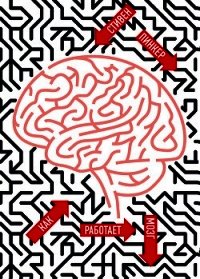Язык как инстинкт - Пинкер Стивен (читать книги онлайн полностью без регистрации .TXT) 📗
Bamberg P. G. & Mandel M. A. 1991. Adaptable phoneme-based models for large-vocabulary speech recognition // Speech Communication, 10. P. 437–451.
Barkow J. H. 1992. Beneath new culture is old psychology: Gossip and social stratification // Barkow, Cosmides & Tooby, 1992.
Barkow J. H., Cosmides L. & Tooby J. (Eds.) 1992. The adapted mind: Evolutionary psychology and the generation of culture. New York: Oxford University Press.
Basso A., Lecours A. R., Moraschini S. & Vanier M. 1985. Anatomoclinical correlations of the aphasias as defined through computerized tomography: Exceptions // Brain and Language, 26. P. 201–229.
Bates E., Thal D. & Janowsky J. S. 1992. Early language development and its neural correlates // I. Rapin & S. Segalowitz (Eds.), Handbook of neuropsychology, Vol. 6: Child neurology. Amsterdam: Elsevier.
Bates E., Thal D. & Marchman V. 1991. Symbols and syntax: A Darwinian approach to language development // Krasnegor et al. 1991.
Baynes K. & Iven C. 1991. Access to the phonological lexicon in an aphasic patient. Paper presented to the annual meeting of the Academy of Aphasia.
Belliveau J. W., Kennedy D. N., McKinstry R. C., Buchbinder B. R., Weisskoff R. M., Cohen M. S., Vevea J. M., Brady T. J. & Rosen B. R. 1991. Functional mapping of the human visual cortex by Magnetic Resonance Imaging // Science, 254. P. 716–719.
Bellugi U., Bihrle A., Jernigan T., Trauner D. & Doherty S. 1991. Neuropsychological, neurological, and neuroanatomical profile of Williams Syndrome // American Journal of Medical Genetics Supplement, 6. P. 115–125.
Bellugi U., Bihrle A., Neville H., Doherty S. & Jernigan T. 1992. Language, cognition, and brain organization in a neurodevelopmental disorder // M. Gunnar & C. Nelson (Eds.), Developmental behavioral neuroscience: The Minnesota Symposia on Child Psychology. Hillsdale, N. J.: Erlbaum.
Berlin B., Breedlove D. & Raven P. 1973. General principles of classification and nomenclature in folk biology // American Anthropologist, 87. P. 298–315.
Berlin B. & Kay P. 1969. Basic color terms: Their universality and evolution. Berkeley: University of California Press.
Bernstein T. M. 1977. The careful writer: A modern guide to English usage. New York: Atheneum.
Berwick R. C. 1985. The acquisition of syntactic knowledge. Cambridge, Mass.: MIT Press.
Berwick R. C., Abney S. P. & Tenny C. (Eds.) 1991. Principle-based parsing: Computation and psycholinguistics. Dordrecht, Netherlands: Kluwer.
Berwick R. C. & Weinberg A. 1984. The grammatical basis of linguistic performance. Cambridge, Mass.: MIT Press.
Bever T. G. 1970. The cognitive basis for linguistic structures // J. R. Hayes (Ed.), Cognition and the development of language. New York: Wiley.
Bever T. G., Carrithers C., Cowart W. & Townsend D. J. 1989. Language processing and familial handedness // A. M. Galaburda (Ed.), From reading to neurons. Cambridge, Mass.: MIT Press.
Bever T. G. & McElree B. 1988. Empty categories access their antecedents during comprehension // Linguistic Inquiry, 19. P. 35–45.
Bickerton D. 1981. Roots of language. Ann Arbor, Mich.: Karoma.
Bickerton D. & commentators. 1984. The language bioprogram hypothesis // Behavioral and Brain Sciences, 7. P. 173–221.
Bickerton D. 1990. Language and species. Chicago: University of Chicago Press.
Bickerton D. 1992. The pace of syntactic acquisition // L. A. Sutton, C. Johnson & R. Shields (Eds.), Proceedings of the 17th Annual Meeting of the Berkeley Linguistics Society: General Session and Parasession on the Grammar of Event Structure. Berkeley, Calif.: Berkeley Linguistics Society.
Birdsong D. 1989. Metalinguistic performance and interlinguistic competence. New York: Springer-Verlag.
Bishop D., V. M., North T. & Conlan D. 1993. Genetic basis for Specific Language Impairment: Evidence from a twin study. Unpublished manuscript, Medical Research Council Applied Psychology Unit, Cambridge, U. K.
Bley-Vroman R. 1990. The logical problem of foreign language learning // Linguistic Analysis, 20. P. 3–49.
Bloom A. H. 1981. The linguistic shaping of thought: A study in the impact of language on thinking in China and the west. Hillsdale, N. J.: Erlbaum.
Bloom A. H. 1984. Caution — the words you use may affect what you say: A response to Au // Cognition, 17. P. 275–287.
Bodmer W. F. & Cavalli-Sforza L. L. 1970. Intelligence and race // Scientific American, October.
Bolinger D. 1980. Language: The loaded weapon. New York: Longman.
Botha R. P. 1989. Challenging Chomsky. Cambridge, Mass.: Blackwell.
Bouchard T. J., Jr., Lykken D. T., McGue M., Segal N. L. & Tellegen A. 1990. Sources of human psychological differences: The Minnesota study of twins reared apart // Science, 250. P. 223–228.
Bowerman M. 1982. Evaluating competing linguistic models with language acquisition data: Implications of developmental errors with causative verbs // Quaderni di Semantica, 3. P. 5–66.
Braine M. D. S. 1971. On two types of models of the internalization of grammars // D. I. Slobin (Ed.), The ontogenesis of grammar: A theoretical symposium. New York: Academic Press.
Braine M. D. S. 1976. Children’s first word combinations // Monographs of the Society for Research in Child Development, 41.
Brandon R. N., fit Hornstein N. 1986. From icons to symbols: Some speculations on the origin of language // Biology and Philosophy, 1. P. 169–189.
Brandreth G. 1980. The joy of lex. New York: Morrow.
Breland K. & Breland M. 1961. The misbehavior of organisms // American Psychologist, 16. P. 681–684.
Bresnan J. 1982. The mental representation of grammatical relations. Cambridge, Mass.: MIT Press.
Bresnan J. 1990. Levels of representation in locative inversion: A comparison of English and Chichewa. Unpublished manuscript, Department of Linguistics, Stanford University.
Bresnan J. & Moshi L. 1988. Applicatives in Kivunjo (Chaga): Implications for argument structure and syntax. Unpublished manuscript, Department of Linguistics, Stanford University.
Brown D. E. 1991. Human universals. New York: McGraw-Hill.
Brown P. & Levinson S. C. 1987. Politeness: Some universals in language usage. New York: Cambridge University Press.
Brown R. 1957. Linguistic determinism and parts of speech // Journal of Abnormal and Social Psychology, 55. P. 1–5.
Brown R. 1958. Words and things. New York: Free Press.
Brown R. 1973. A first language: The early stages. Cambridge, Mass.: Harvard University Press.
Brown R., and Hanlon C. 1970. Derivational complexity and order of acquisition in child speech // J. R. Hayes (Ed.), Cognition and the development of language. New York: Wiley.
Brunvand J. H. 1989. Curses! Broiled again! The hottest urban legends going. New York: Norton.
Bryson B. 1990. The mother tongue. New York: Morrow.
Buchsbaum R. 1948. Animals without backbones (2nd ed.). Chicago: University of Chicago Press.
Burling R. 1986. The selective advantage of complex language // Ethology and Sociobiology, 7. P. 1–16.
Burling R. 1992. Patterns of language: Structure, variation, change. New York: Academic Press.
Bybee J. 1985. Morphology: A study of the relation between meaning and form. Philadelphia: Benjamins.
Calvin W. H. 1983. The throwing madonna: Essays on the brain. New York: McGraw-Hill.
Campbell J. 1982. Grammatical man. New York: Simon & Schuster.
Caplan D. 1987. Neurolinguistics and linguistic aphasiology. New York: Cambridge University Press.




